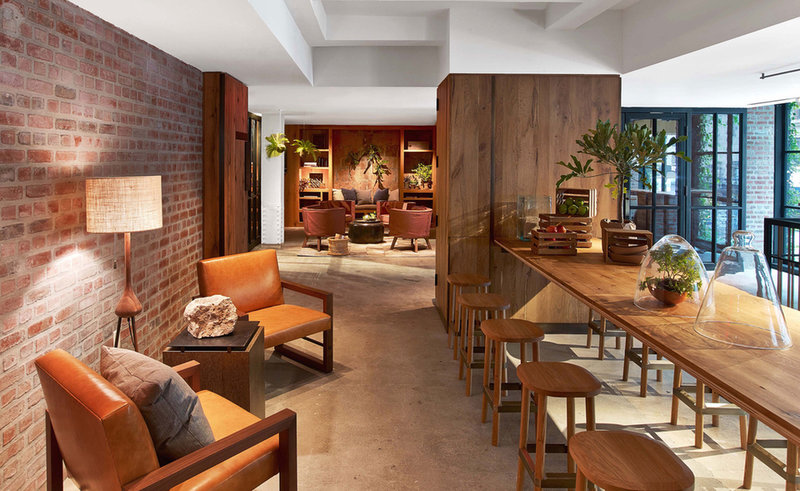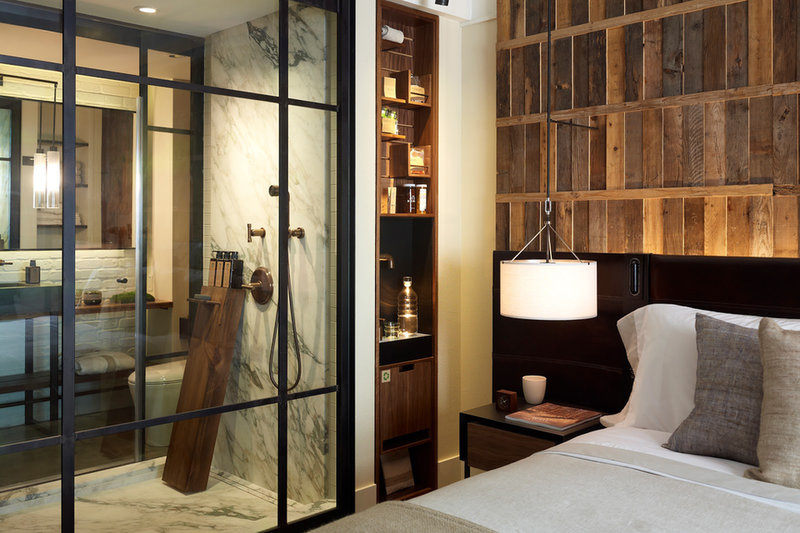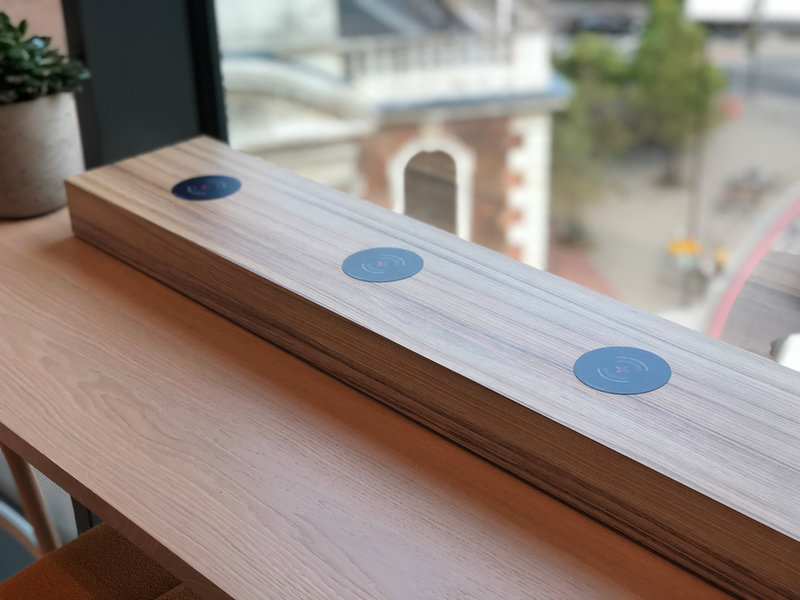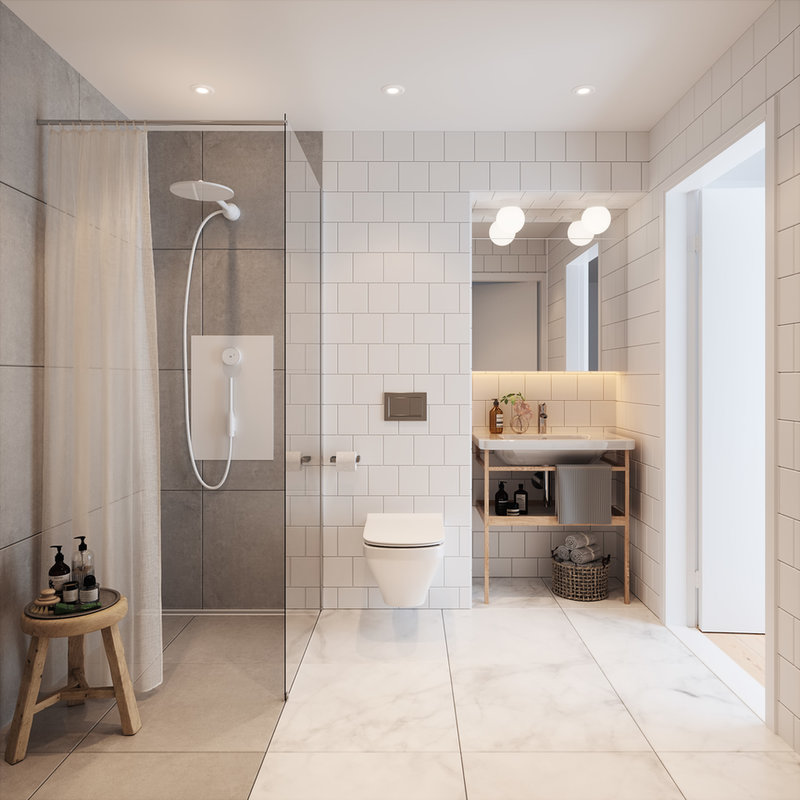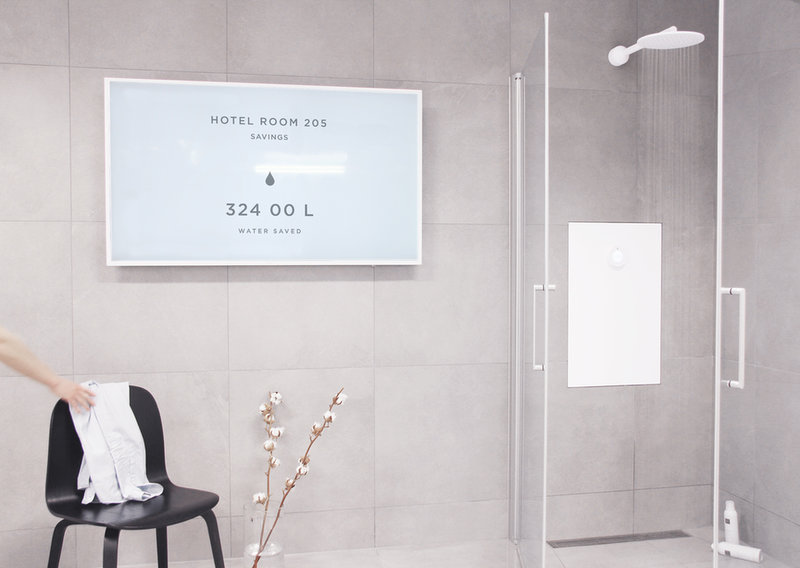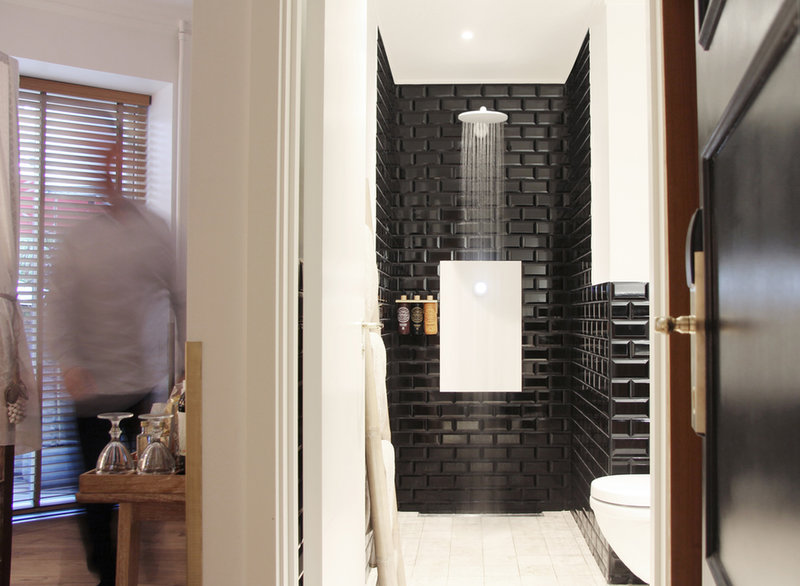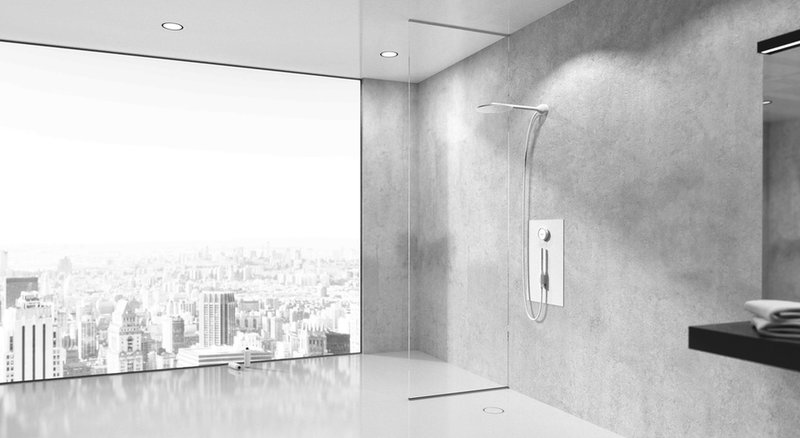Smart Technologies That Compliment Hotel Design
Smart technology has proliferated our homes – and now it’s coming to hotels. Rob Scammell looks at two smart technologies that provide value to guest and hotelier alike, all while complimenting the aesthetic of the hotel
Although many hotels have been slow to bring the internet of things (IoT) into the hotel space, smart lights and locks are gradually becoming the norm. Some hotels, such as the Wynn Hotel & Resort in Las Vegas, have leveraged consumer tech like Amazon Echos in its guest rooms, giving them control over lights and the TV.
On the more novel end is the Aloft Hotel’s towel-providing robotic butler, but it’s unlikely to roam a hotel lobby near you any time soon.
Both these technologies are add-ons. But with wireless charging and smart showers, the solution is integrated, meaning designers have to take more care.
Images courtesy of Chargifi
Less wires, more style
Keeping devices powered up has become a crucial demand for hotel guests – a convenient bedside plug is a must. But with both Apple and Google recently cementing their commitment to wireless charging in their latest models, the world is likely to become more wireless.
Design possibilities are wider, unrestrained by wires.
Forward-thinking hotels are getting ahead of this curve, and they can do so in ways that bring both style and added value. Chargifi, for example, is providing smart wireless charging technology that can give hoteliers useful data, such as measuring footfall at the bar.
“ Now is the time for hotels to act on the wireless charging revolution by integrating an aesthetically pleasing and functional solution, or they will face being left behind. ”
In one case study, a hotel using Chargifi’s wireless charging located at the bar projected a 64% return on investment. The reason? Guests were more likely to stay for one more drink while their phone topped up with juice on the surface of the bar, improving revenue 10% per bar seat.
“Hoteliers, retail businesses and workplaces are rapidly integrating wireless charging into their spaces as a response to growing consumer expectations and demand, as well as the continued convergence between work and play,” says Chargifi CEO and founder Dan Bladen.
Charging pads need not be an afterthought, either. There are an increasing number of stylish charging pads, as well as bespoke designs integrated into furniture, such as Hannaford’s bespoke pieces that combine craftsmanship with innovation.
“We live in an era where the consumer not only has a keen eye for aesthetically pleasing design but also expects their daily experience to be as seamless and personalised as possible,” says Hannaford project manager Russell Whish.
“Integrating smart wireless charging into a hotel satisfies both the functional and design need.”
Hannaford, in partnership with Chargifi, understands how hotel spaces are being used and will be used.
“Now is the time for hotels to act on the wireless charging revolution by integrating an aesthetically pleasing and functional solution, or they will face being left behind.”
Images courtesy of Orbital
The smart shower from space
There is room too for smart tech in the hotel bathroom. With the average hotel guest using more than 95l of water per ten-minute shower, a hotel with 500 guests will go through at least 4,75l of water per day.
Swedish startup Orbital Systems takes inspiration from space to solve this problem, bringing with it a modern, sci-fi aesthetic.
“ We don’t disrupt the overall hotel room design identity, whether it is Victorian style or modern Scandinavian design. ”
The internet-enabled shower, Oas, was devised for and accredited by NASA. Its closed loop system recirculates 2.8l of clean water per shower. Its sensors analyse the water 100 times per second, telling the filters to remove particles from sand to bacteria. Water that is too contaminated is discarded and replaced with fresh water.
Orbital claims to reduce water usage by up to 90% when compared to traditional usage and estimates that it has saved over 13 million litres of water since its commercial launch in 2015.
CEO and founder Mehrdad Mahdjoubi, who was inspired to develop the smart shower when collaborating with NASA’s Johnson Space Centre and Sweden’s Lund University, believes that being minimalistic as key to the design approach.
“We integrate our technology in the wall, so we don’t disrupt the overall hotel room design identity. Whether it is Victorian style or modern Scandinavian design, our technology just goes along with that,” he says.
While Mahdjoubi has cracked the water recycling, there are other factors to consider when rolling it out at scale in hotels, such as ease of maintenance.
“This is something we’ve spent lots of time on,” he says. “So now, ongoing maintenance can be done by basically anybody. In the hotel segment, it’s done by the regular room cleaning staff.”
The value to the hotelier is obvious when cutting down water wastage. But as well as its simplistic and sleek design, it provides a unique user experience for the customer.
“In our case we increase the user experience quite substantially and (almost as important), we do it in a very tangible manner,” says Mahdjoubi. “We increase the water flow and deliver precise temperature control managed by a digital and waterproof display.
“This becomes very visual and is one of the most appreciated features of our technology.”
